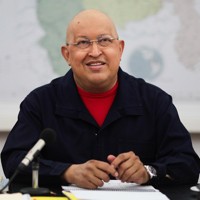Although it is difficult to predict the precise course of Venezuela’s current leadership transition, it is almost certain that President Hugo Chavez will pass away within the coming weeks or months. His departure will impact not only Venezuela, but also the Bolivarian Alliance for the Americas (ALBA), the regional bloc that Chavez founded to promote his vision of Bolivarian socialism. While conventional wisdom assumes these impacts will be mostly negative, this is not necessarily the case. In fact, another outcome is possible: A rejuvenated ALBA could take shape, one centered on a new coalition of pragmatists and restructured around economic cooperation with China.
Vice President Nicolas Maduro and National Assembly chief Diosdado Cabello, either of whom might succeed Chavez in the short term, will attempt to maintain the status quo in Venezuela for as long as possible. But change will come quickly once Chavez’s death is officially recognized. The constitutional requirement for elections within 30 days of the president’s death is not only legally unambiguous, it has become a cornerstone of the current debate. The Venezuelan ruling elite may be thoroughly corrupt, but they are pragmatic; they will likely gamble that permitting an election in which they control the machinery of the state is less risky than ignoring the requirement, given a military whose guidepost during crises has consistently been its responsibility to defend the constitution.
Generalized violence, whether spontaneous or orchestrated, could always derail elections, yet the incentives are strong for both Chavez’s loyalists and the opposition to seek legitimacy through the ballot box.

